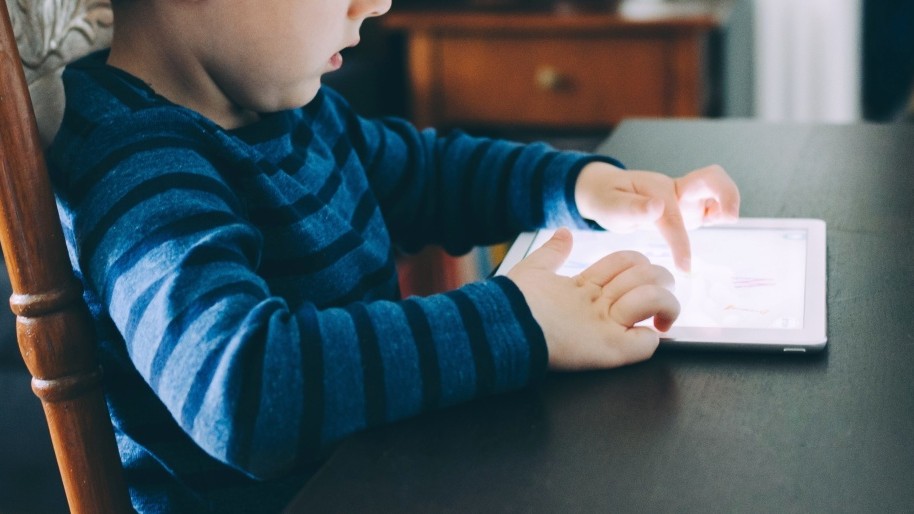Screen Time Might Be To Blame For Poor Demeanor In Schools
A new study suggests that increased screen time among school-aged children might be to blame for bad student behavior.

Screen time is like a double-edged sword. While the negative effects have been studied, and widely known for decades, technology is making it harder and harder to limit children’s screen time. Excessive screen time in kids can put physical strain on the eyes, lead to sleep deprivation, and increases the risk of obesity. But as research continues on the matter, a new analysis from Education Week finds a correlation between screen time and student behavior.
Education Week conducted a nationally represented survey in February and found that 88% of teachers reported that students’ learning challenges rose along with their increased screen time. Furthermore, the survey found that 80% of the teachers said that the behavior issues grew worse with more screen time. A little over one-third of them said the problem was dire, stating that student behavior had become “much worse” due to excessive screen time.

Plenty of research back up the claims that kids are spending more time in front of electronics than ever, leading to student behavior issues. According to an annual report from the nonprofit Common Sence Media, screen time for young children aged 8 to 18 jumped 17% between 2019 and 2021, subjectively in direct correlation to the onset of the pandemic. In studied groups aged 8-12, screen time rose by nearly one hour per day and more than an hour and 15 minutes for teenagers. These findings don’t even account for screen time used for school work and educational purposes.
While correlating the connection between excessive screen time and student behavior might be difficult to prove, some experts believe looking at educational screen time hints at the attitude issued found by educators. The American Academy of Pediatrics (AAP) advises that children aged two to five should receive no more than an hour of any sort of screen time in a day, but it fails to set recommended limits for school-aged children. The defacto with this might suggest educational screen time isn’t frowned upon. Imagine the case of a child who spends an hour playing video games. Let’s say that kid then goes to spend another hour or two doing homework online. Let’s also say they play an hour’s worth of educational gaming content as well. Does that educational screen time also negatively affect student behavior and health?
The reason the AAP might fail to set screen time limit suggestions for older children may be due to the fact that there is no concrete evidence suggesting educational content in this form harms children. In fact, studies have shown that the time children spend on electronics viewing educational content can be beneficial, regardless of the health concerns from non-educational screen time. Likewise, researchers at the University of Washington once ran a study and found that when parents of preschoolers replaced regular content, often deemed violent in nature, with educational content, the children’s behavior issues declined.

While subjective, it is easy for parents, researchers, and educators to conclude that violent screen-time content might be the culprit for bad student behavior. Earlier this school year, multiple reports of elementary students playing “squid games” based on the popular adult Netflix show, Squid Games. Similarly, Roblox, which is a popular video game platform for children of all ages, is constantly being scrutinized for violent content, as the games on the platform are meagerly moderated.
The findings are alarming, but it’s no surprise to see a correlation between student behavior and screen time. Parents that wish to combat the negatives without having to refrain from electronics altogether can take steps to get their children on healthier, education-based platforms. Education apps like Homer or ABC Mouse are great tools but come with a price. But there are also plenty of free apps and sites as well, like Khan Academy.



